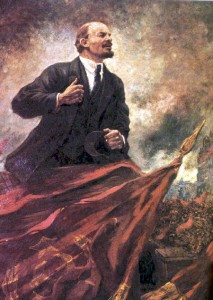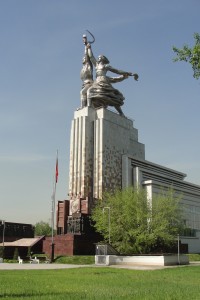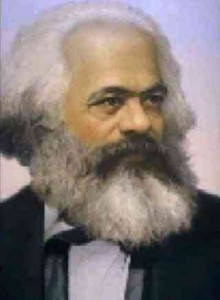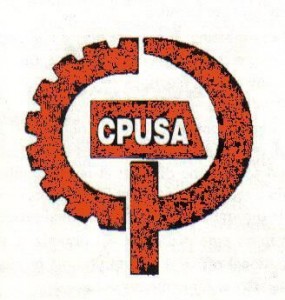As the CPUSA proceeds towards its 30th annual convention in Chicago, a number of “preconvention discussion documents” are appearing on the CPUSA website. It certainly appears that the CPUSA fully intends to continue down its self-destructive, reactionary and bourgeois boot licking path. Sam Webb has posted an essay titled “Toward a Modern & Mature 21st Century Communist Party.” http://www.cpusa.org/convention-discussion-toward-a-modern-mature-21st-century-communist-party// Although an essay is generally thought to be the personal opinion of the individual writer, since it is written by the chairperson of the party, we can assume that this will be the roadmap for the immediate future of the CPUSA.
The essay is filled with contradictions which Webb himself identifies. It is almost as if someone has tried to write an ideological bombshell which will eventually implode based on its internal contradictions and inconsistencies.
Let us examine some of these contradictions and view them through Marxist-Leninist lens.
Marx and Engels on alliances with the petty-bourgeois
It would seem appropriate to start with a quote from Karl Marx and Frederick Engels “Address of the Central Authority to the League (March, 1850)” (MECW, IP, volume 10, page 280) since Webb characterizes the CPUSA as “Marxist.†Marx and Engels wrote “The relation of the revolutionary workers’ party to the petty bourgeois democrats is this: it marches together with them against the faction which it aims at overthrowing, it opposes them in everything by which they seek to consolidate their position in their own interests.” On page 283 they continue “In a word, from the first moment of victory, mistrust must be directed no longer against the defeated reactionary party, but against the workers’ previous allies, against the party that wishes to exploit the common victory for itself alone.” On page 284 they spell it out “Even where there is no prospect whatever of their being elected, the workers must put up their own candidates in order to preserve their independence, to count their forces and to lay before the public their revolutionary attitude and party standpoint. In this connection they must not allow themselves to be bribed by such arguments of the democrats as, for example, that by so doing they are splitting the democratic party and giving the reactionaries the possibility of victory. The ultimate purpose of all such phrases is to dupe the proletariat. The advance which the proletarian party is bound to make by such independent action is infinitely more important than the disadvantage that might be incurred by the presence of a few reactionaries in the representative body. On page 287, Marx and Engels concluded “But they themselves must do the utmost for their final victory by making it clear to themselves what their class interests are, by taking up their position as an independent party as soon as possible and by not allowing themselves to be misled for a single moment by the hypocritical phrases of the democratic petty bourgeois into refraining from the independent organization of the party of the proletariat.”
Let’s see how Sam Webb’s proposals stack up against the words of Marx and Engels.
More “If you can’t beat ‘em, join ‘em” or “Back to the future”
Chairperson Webb wrote on the first page of his document “For the past 25 years, our strategic objective has been the building of a labor-led people’s coalition against Republican right wing domination of our nation’s political structures. Its aim isn’t to bring us to a gate on which is inscribed ‘Doorway to Socialism.'” He continues “But again, our current strategy-which envisions the broader movement in a tactical, but necessary alliance with the Democratic Party against right wing extremist candidates and initiatives-is only one stage in a longer-term process whose goal is to radically reconfigure class relations as well deepen and extend the democracy (probably understood as the right to a job, living wage, healthcare and housing, right to organize into unions, quality integrated education, reproductive rights, comprehensive immigration reform, affirmative action and an end to all forms of discrimination, green environmental policies, etc.). He follows the statements up with “While we favor a socialist solution, a far more likely political possibility in the near and medium term is a series of measures that radically roll back corporate power, privilege, and profits and overhaul the priorities of government, but still within the framework of capitalism.”
Instead of a modern Communist Manifesto which someone should be writing, the CPUSA chairperson has once again authored a paper which should be titled the Capitulation Manifesto or Class Collaboration Manifesto. He openly and unabashedly advocates an “alliance with the Democratic Party.” He would have us believe that such an alliance will lead to a reconfiguration of class relations and a deepening and extension of democracy. He also openly advocates for a continuation of capitalism. Lenin’s teachings, which he would like to drop, tell us that all reforms can be rolled back by the ruling class when it is politically expedient. This has certainly become clear in recent years.
Marxist Leninists view democracy as a form of the state. They view the state as the means by which one class, i.e. the ruling class, oppresses another class. In our current situation, this would translate to the capitalist class oppression of the working class. For a thorough discussion of Marxist-Leninist views of democracy, go to http://www.youtube.com/watch?v=OoQN4mKBJtc  . Webb obfuscates the meaning of democracy by defining it as a string of reforms as indicated above. He makes no mention of the fact that in this country we have bourgeois democracy, in other words democracy for the wealthy, by the wealthy and of the wealthy.
Since Webb advocates “an alliance with the Democratic Party,” we should examine this and understand it more clearly. Amazingly, Webb clarifies by stating “the top circles of the Democratic Party are anchored to the outlook, needs, and policies of major sections of the capitalist class, thereby making it an unreliable and inconsistent ally… My point is to underscore the importance of expanding the network of progressives and liberals at every level of government, and further building the independent parents and formations in and outside the Democratic Party-while at the same time, stressing the urgent (and hardly mundane) task of building a broad coalition against right-wing extremism, in which the President and the Democrats play a necessary role.
As for the formation of an independent People’s party at the national level, we should keep it in the conversation even if it isn’t yet on the horizon…”
Webb also says “Ours is a party that places a high priority on independent political action. Now I am not suggesting that we do an about-face with respect to the Democratic Party. At this stage of struggle that would be a stupid mistake-strategic and tactical. The Democratic Party is an essential player in any conceivably realistic strategy for defeating the Republican Party and right-wing extremism… Although the Democratic Party comprises diverse people and interests, it has a class gravity and anchorage about which we shouldn’t lose sight.
The main seats at its table are occupied by political players and powerbrokers who by disposition, loyalty and worldview are committed, and then, to creating favorable conditions for the accumulation of capital (profits) and for the smoothest reproduction of capitalism on a national and global level.
Neoliberalism, globalization, and financialization-all of which deepened inequality, severely aggravated economic instability and crisis, undid many of the reforms of the previous century, and disempowered people-are simply creatures of the Republican right.
Now, the election of Reagan and the ascendancy of the right did play a big role in the process, and the Republican right is a leading edge of the current ruling class offensive. But the Democrats were not bystanders either. While they resisted the more extreme measures of their right-wing counterparts, they also embraced some of the main assumptions and practices of neoliberalism, financialization, and globalization.
The Carter administration was the first out of the gate, but it was the Clinton administration and the Democratic Leadership Council that really greased the skids for the rise of finance and speculation, globalization, and the reduction of government’s responsibility to the people.
And even today, the president and his advisers and leading Democrats in the Senate and House are far from free of such thinking and practices.
And as for foreign-policy, the differences between the two parties are more tactical than strategic. While such differences can be of enormous consequences to the preservation of a peaceful world and thus shouldn’t be dismissed by progressive and left people and organizations, it is also a fact that both parties are committed to US global dominance and the growth of the national security state.”
So, let’s see if we can untangle this Webb of ideas. He admits right away that the strategic objective of the CPUSA is not to seek Socialism at this stage in the struggle. He indicates that the strategic objective of the party is to combat the demons of the right wing. The fatal contradiction in this thinking becomes apparent when Webb himself asserts that right wing elements are very visible and influential within the Democratic Party. Although Webb’s obfuscation makes clarity a stranger to the party, it appears that he is telling us that in order to further the interests of the working class, we workers must ally with our class enemies. What would have been the outcome of World War II if Stalin had commanded members of the Communist Party of the Soviet Union to ally themselves with the fascist elements in the Soviet Union? What would have been the outcome of the struggle against the Vietnam War if the Communist Party leadership had advocated uncritical support and alliance with the imperialist administration of Lyndon Baines Johnson, who was a progressive Democrat, because he was a progressive Democrat? President Johnson helped move the civil rights struggle forward, but at the same time his policies resulted in the unnecessary deaths of many people of the working class in the United States and Vietnam.
Webb himself notes that there is little difference between the Republican Party and the Democratic Party in terms of foreign-policy.
This hypocrisy and contradictory thinking cannot in any sense be characterized as Marxist, Marxist-Leninist, communist, or socialist and it certainly does not promote the interests of the working class.
Webb has a history of surrender before the battle even starts. In an interview with Glenn Beck several years ago he announced that “socialism is off the table.” Even though a large percentage of the US population favor socialism over capitalism according to recent polls, Webb has not budged from this negativistic position. What would have been the outcome of the 1917 Russian Revolution if Lenin had said “socialism is off the table?”
Fighting the right wing is a necessary and ever present part of the struggle for socialism. The history of socialist countries instructs us that the struggle against the right wing continues after socialism has been achieved. Webb also states that the CPUSA places a priority on independent political action. One Democratic Party candidate for president asked the question some years ago “Where’s the beef?” We must apply this question to the CPUSA in the current situation. It would be one thing if the CPUSA was attempting to confront the right wing ideologically, politically, or any other way. However, rather than criticizing the right wing, Webb and other party writers concentrate on criticizing left thinkers such as Chris Hedges. Instead of mounting a program to train party cadre in political struggle, and running communist candidates for public office, members are told to merely “vote Democratic!” Their slogan appears to be “All power to the Democrats!”
Webb has mired the Communist Party in this idea of an unholy alliance with the Democrats and has repeatedly expelled party members who speak out against this twisted path. I should know since I was expelled for this reason in August, 2012 on the same day that I received a diagnosis of oral cancer. Commanding party members to support the Democrats is tantamount to the Pope telling Catholics to convert to Judaism. This is a slick way to destroy the identity and mission of an organization, i.e. simply ally the organization with an organization with which members do not identify. Once the self-destructive edict is issued, the next step is to excommunicate any member who refuses to follow the edict. This is the modus operandi of the CPUSA currently.
What would an alliance with the Democrats mean?
Realistically speaking, if an alliance could be forged with the Democrats, what would this mean? For example, a few years ago in Germany the leading Social Democratic Party was unable to form a majority coalition in the legislature. The Communist Party offered to join a coalition with the Social Democratic Party in order to achieve a majority coalition. The Social Democratic Party refused to form a coalition with the Communist Party even though this would have meant that they would have stayed in power. Such a coalition would have prevented Angela Merkel of the right wing Christian Democratic Union from taking power.
In the United States, such an alliance between the Communist Party and the Democratic Party might be characterized as an annoying tick attaching itself to a donkey. The donkey would be periodically irritated by the presence of the tick which would appropriately be attached to the donkey’s tail. The donkey would swish the tail in an effort to rid itself of the tick. Eventually, if the tick was irritating enough, the donkey might go to extraordinary lengths to get rid of the parasite.
If the CPUSA was able to form an alliance with the Democrats, it would be a parasitic relationship and it is clear that the CPUSA would be the parasite. It is clear that the Democratic Party does not need any more parasites. Indeed, it has plenty of leeches from the capitalists which weigh it down and make it difficult for it to operate effectively. If there was a recognizable and visible alliance between the Democratic Party and the Communist Party, this would become a very effective weapon that the neofascists could use against the Democratic Party. A party member once told me that the Communist Party “does not want to be the issue.” If the CPUSA formed an alliance with the Democrats, it is quite likely that the CPUSA would be the issue in the struggle against the ultra-right. This strategy is not only anti-Communist, and divorced from Marxism Leninism but it is also divorced from reality.
What do workers need?
Progressive workers in the United States need a Communist Party which serves them by acting as a guiding light in the struggle for workers to gain state power. Workers need a Communist Party which fearlessly and unflinchingly fights for the interests of working people. Workers need a Communist Party which critically analyzes its own work and the policies of Social Democrats as well as the right wing reactionaries. Indeed, as in the past, workers need a Communist Party which leads a movement to oppose the antiworker policies of whatever bourgeois political party is in power, Republican or Democrat. Certainly, the right wing, which is merely the guard dog for the ultra-wealthy class, is not shy about applying pressure for the interests of the wealthy. It would be beneficial if the Communist Party was not shy about applying pressure for the interests of the workers.
But here Webb departs from Marxism Leninism again. In his paper he admits that the CPUSA has jettisoned the idea of a vanguard party of the working class. In addition to disavowing the leading role of the party, he notes that “a few decades ago we scrapped the hammer and sickle, mothballed the red flag, and dropped phrases like ‘dictatorship of the proletariat.’ We worked hard to get rid of leftist jargon, and change the names of our collective bodies and leaders’ titles.” He goes on to state “In recent years, many party leaders, myself included, have dropped the term ‘Marxism Leninism’ and simply use ‘Marxism.'” There have been reports from around the country that Webb has strongly advocated at various meetings dropping the word “communist” from the CPUSA. Apparently, he has met with some resistance among party members who realize that if the current leadership sheds the skin of the party, there will be nothing left and nothing left to do but dissolve the party.
Rather than celebrate the glorious history of the party in leading the struggle for socialism and against fascism/nazism, Webb says “It is a party that utilizes slogans, symbols and terminology that resonate with a broad audience. And it should shed those that no longer fit today’s circumstances or are freighted with negative connotations, and not only because of the mass media, but also because of the practices of the communist movement in the last century.” Here he dismisses not only the achievements and contributions of various socialist states ruled by Communist parties such as the Soviet Union, Cuba, China, Vietnam, Laos and many others, but also dismisses the achievements and contributions of communist parties in non-socialist countries such as the United States, Canada, Greece, Mexico, India, South Africa, Venezuela, Brazil, England, France and Germany and many others. If there ever was an anti-Communist statement, this would be it.
Summary
In summary, this preconvention discussion document which is the roadmap for the future of the party since it is written by the party’s highest leader is full of contradictions and self-destructive actions. It jettisons almost all of the central ideas of Marxism Leninism and damns the history of the party. It argues that workers should ally themselves with their class enemy in order to struggle against the class enemy. He promises “a pie-in-the-sky when you die” to party members as well as the working class if they subscribe to his prescription for disaster.
Instead of this idealistic claptrap, the working class has earned through struggle a party which will lead it and prepare it for its historic mission which is the winning of state power for working people. Workers need education and training in political struggle so that they can fight for their interests without being confused by anti-worker parasitic parties. Workers are becoming increasingly aware that their interests are not advanced by financial bailouts of multinational corporations, expanding wars which serve to protect and increase profits, rollbacks of the social network, interference in the affairs of sovereign nations, and an ever-increasing military industrial complex and national security state. Workers know which parties have implemented these policies and are growing increasingly hostile to those leaders responsible. An alliance with those leaders would be poison to any organization which claims to be a worker’s party.
Hopefully, the CPUSA will come to its senses and resist the contradictory and irrational proposed program at its upcoming convention. The future of this country and the world depends on the development of a realistic workers party program. Without socialism, the world will continue to see ever-increasing economic and social crises which will lead to catastrophe. The slogan of the CPUSA convention should be “Forward to a Socialist USA!”















